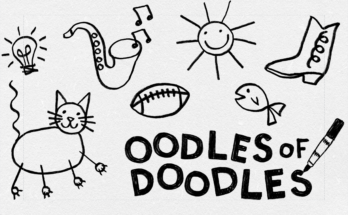Story by Sally Henry
Photos by A’riel Tinter
What do you do when called to write a play about a silent retreat? Do you strip yourself of the ability to use words – your most powerful, well-trained tool — or do you sacrifice the objective and let your characters break the given circumstances of the world within a few pages? This is the conundrum Bess Wohl found herself up against when she set out to write Small Mouth Sounds.
“It was a very long process to try to figure out the exact answer to that question,” Wohl says. “My first draft of the play actually had a lot of dialogue in it. I set up the rules of the world as, ‘We’re going to be in silence,’ and because I am a playwright, and I like talking, I let the characters break the rules immediately. So within three pages, everyone was chatting.”
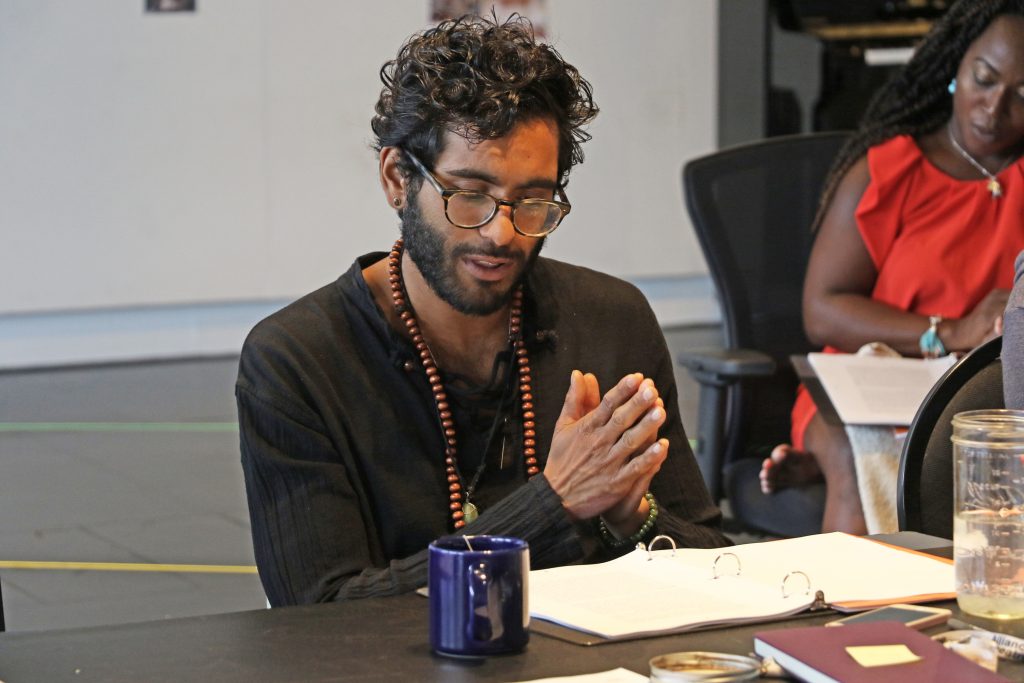
A friend of Wohl’s encouraged her to meet her own challenge of limiting dialogue, so in a complete 180 rewrite, the next draft of the piece had no talking at all. But even then, Small Mouth Sounds felt flawed to her.
“When I put that on its feet with some actors,” shares the playwright, “it became clear that there were moments where the situation really called for somebody to speak, and you felt that a real person would say something in this moment even if they had taken a vow of silence. But the silence felt sort of imposed by the writer rather than what would organically be truthful to the moment.”
Having experienced silent retreats herself — the first under false pretenses — Wohl knows what that moment can truly be like.
“My first silent retreat was with a close friend of mine who sort of dragged me there. The first night that I was there, I realized that we were actually going to be in silence, and I had brought a few bottles of wine, some snacks… I just had the totally wrong idea of what I was walking into.” Misunderstanding aside, the wheels in her playwright brain immediately began turning. “I pretty quickly thought that this was an interesting place for a play because so much of theatre is about need and transformation, and the reason that people come to these retreats is because they need to be transformed in some way.”
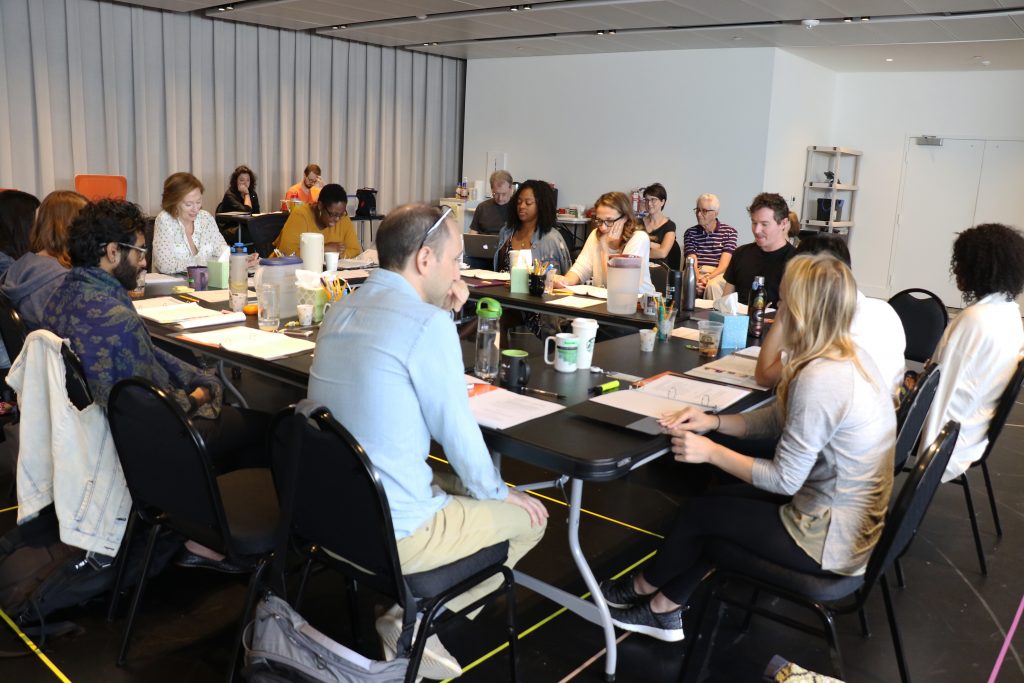
She also realized that theatre audiences are already on their own silent retreat of sorts and therefore provide the ultimate last piece to her puzzle.
“For me, one happy discovery working on this play was realizing how theatre audience members are participants in a sort of silent retreat together in that they’re called into a space together and asked to observe silence together. Sometimes they do, and sometimes they don’t, just like the characters in my play,” she points out. “I was really interested in including the audience as the last piece of the puzzle and having them feel like they are on this retreat with the characters in the play. So, by the end of the play, they too have had some kind of spiritual experience of being in silence together.”
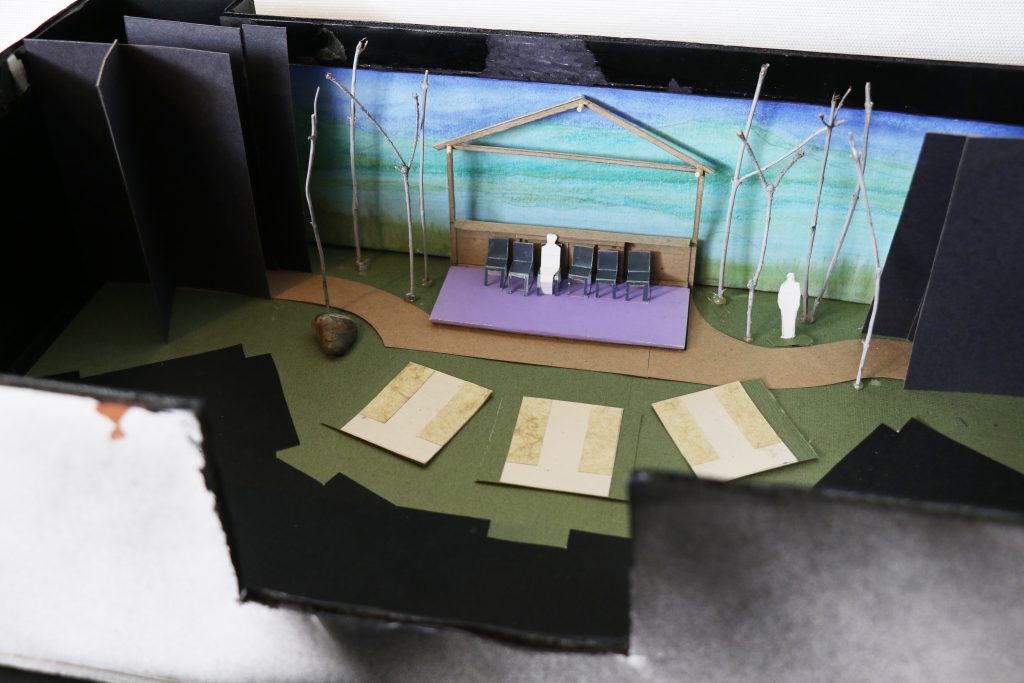
Leslie M. Taylor.
Not only do audience members and characters have a spiritual experience, but Small Mouth Sounds has taken Wohl herself on a journey of intense personal growth.
“Honestly, one of the reasons I was interested in writing this play was to try to challenge myself to sit with silence in my work and in my life,” she shares.
“Can you pause and be brave enough to be in silence and not have to fill every moment with some kind of noise? I definitely found myself as I wrote the play and experienced rehearsals of the play struggling with the questions, ‘Can I live with my feelings of anxiety or boredom or itchiness or need to please the audience in some traditional way that I’ve seen before? Can I stay with the uncomfortable feelings and see if there’s something beyond that that would lead to making something that feels different?’”
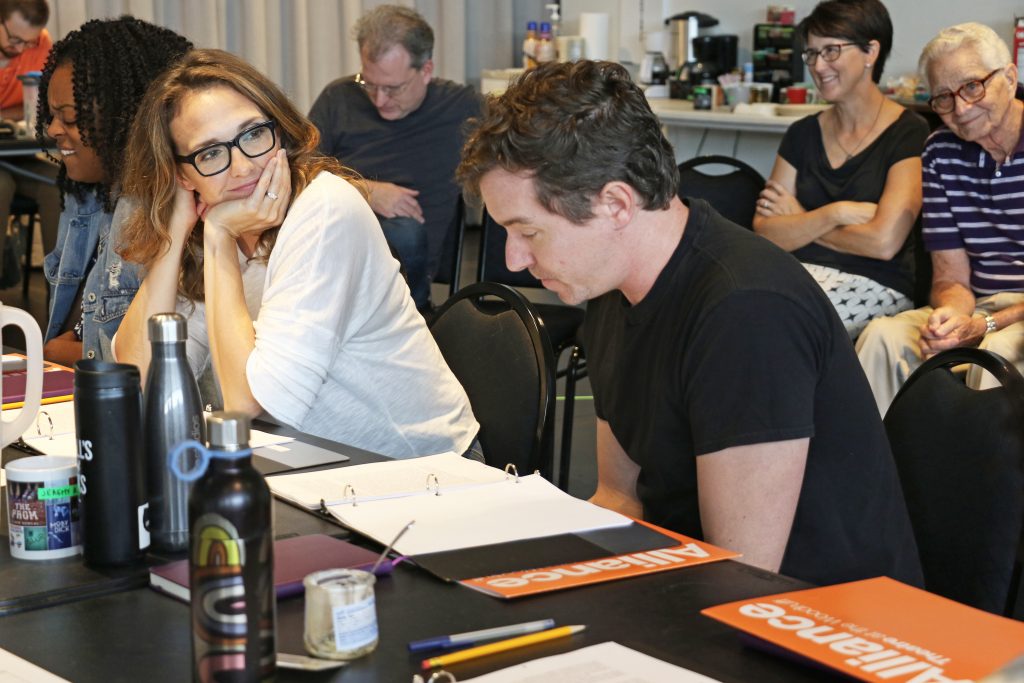
Wohl’s posture of questioning and exploring has allowed her to keep learning about her own piece from everyone who produces it.
“If I knew what I was writing about when I started, I don’t know if I would need to write it,” Wohl admits. “But the writing process and the process of sharing it is really an exploration. It’s a process of discovery.”
This process of discovery encompasses even the audience, from whom Wohl says she learns the most.
“I always find, in a wonderful way, that the audience teaches me really what the play was about all along, and I really don’t know until then. But also, people have such different reactions and experiences, and that’s really the beauty of making something: for people to come and teach you. That’s the last piece of the puzzle, and it’s always really a revelation for me.”
Small Mouth Sounds runs October 4-27. Click here to purchase discounted tickets from $12.50-$22.50.



